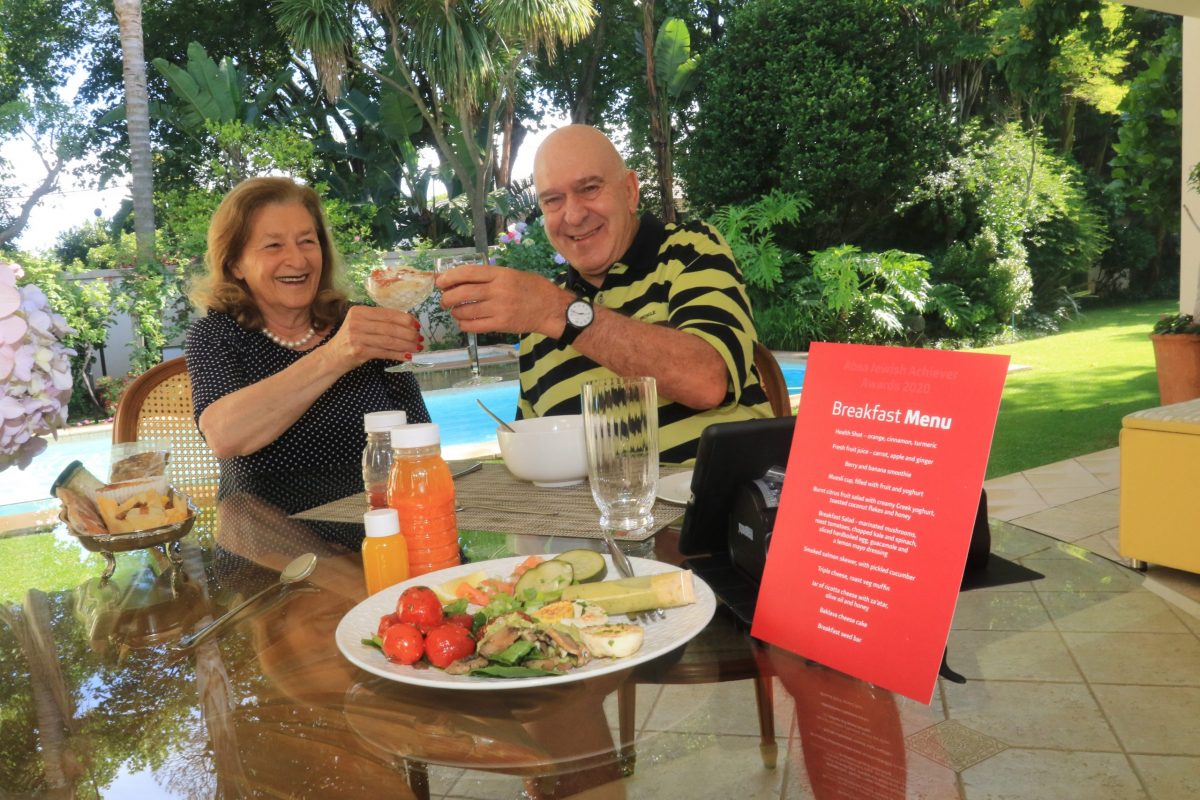click to dowload our latest edition
CLICK HERE TO SUBSCRIBE TO OUR NEWSLETTER


Published
3 years agoon
While we hope that the challenges of 2020 will be over when the clock strikes midnight on 31 December, experts warn that this is just the beginning, but it’s possible to survive, even thrive during the economic downturn in the months ahead. They were speaking at the Absa Jewish Achiever Awards Business Breakfast on 27 November.
“To be forewarned is forearmed,” said Jeff Gable, chief economist for Absa. He predicts that South Africa’s economy will take half a decade to recover to the level it was at in 2019, which in itself wasn’t a rosy picture. He emphasised just how different this downturn is likely to be from previous downturns. After the 2008 recession, it took South Africa about five quarters to return to where it was beforehand, but now the recovery will take five years.
He noted that it was barely a year ago that the first case of what was then known as “Wuhan flu” was confirmed, and everything that has evolved since has happened at “an immense speed and in a super-dense way”. And because our access to a vaccine is a long way off, “the chance that we will return to a ‘normal’ is very much something for the future”.
This will have huge implications for employment, household incomes, financial systems, debt repayment, and social grants. “Scenario planning is critical as we are in a highly uncertain and volatile period. Until we have a vaccine, it will be a ‘stop-start’ environment. The government and National Treasury have made it clear that there simply isn’t enough money to protect the South African economy. The focus will be on the private sector to lead recovery.”
In that bleak picture, how can businesses navigate, let alone excel in the impasse? Professor Nick Binedell, the former dean of the Gordon Institute of Business Science, said, “I’ve learned that every year has its own story and rhythm. This year has had a particular message for us. Life presents these unexpected challenges. Occasionally there are off-ramps or deviations, and suddenly we find ourselves in very different territory.”
He said he had witnessed a changing world and, “The truth of life, strategy, and running a business is that we’ve got to do the best with what we understand a situation to be.” This year, most people have had to focus on keeping businesses afloat, but “the irony is that in periods of massive change like this, whole new opportunities open up. And unless you’re keeping your eyes on the bigger prize, you might miss them.”
He often thinks of the analogy of keys and locks, and how these have evolved from simple Yale locks to retina scanning in the digital age. “The ultimate question is: do you understand your lock and does your key fit the lock? Can you open up new markets? That’s really the heart of good strategy.”
He offers four lenses to help us “think systemically about what to do next”. The first is to consider how the environment around us is changing. He emphasises “stepping out” of the day-to-day routine to network, learn, and adapt. “You don’t want to be ‘sleepwalking’ through it. Habit kills a business. You’re living in the fastest change in human history – some of it negative, a lot positive, and very complex.”
The second lens is strategy. “Develop an idea in action not just in concept. What will your business do that the market wants, or will want it to do, that your rivals can’t do? Answer that coherently on paper, and you may have a strategy. The problem we all have is the fight between memory and vision. So how we got in the room and what we’re doing in the room isn’t necessarily how we’re going to get out of the room,” he says.
The third lens is how you organise a business. “Every start-up goes through many periods of reorganising. And this is absolutely appropriate, because the system drives operations. The way decisions are made must suit the changing world around you, but sometimes we lose track of the engine we are trying to build.” He said excellent South Africa companies “designed their engine room carefully, and are constantly reviewing it”.
Finally, he emphasises the importance of leadership and the people in the business, ensuring that you have the right combination and the right employees to make things happen.
“In some ways, it’s been one of the most fantastic years, because the rhythm of normal has been disrupted, and I love that. South Africa is on a frontier opening up to possibilities and opportunities,” said Binedell.
In conclusion, he advised packing “a map and a mirror” for the journey ahead. “The map lays out what you’re going to do next. Write it down. Make some assumptions. Test those assumptions. But put together the package of choices that you believe are inherent to what you will do differently, that will give your business an advantage. All leaders need a map. It’s how we get from where we are to where we want to go.”
Then, “Have a look in the mirror, and ask yourself why you’re doing this, and why others should want to do this. You have to have the self-belief to answer why you want to be in this battle. That core belief is the culture of the business. The thing I love about business is that we touch and change people’s lives. That’s ultimately our mission. Yes, we keep score financially. But the real goal of business is to add value to people’s lives in a way that gives them a better life and more opportunities.”
